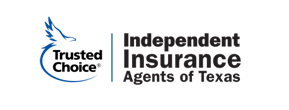Auto insurance
Auto insurance, also known as car insurance or vehicle insurance, is a type of insurance coverage designed to provide financial protection to individuals or businesses in the event of accidents, collisions, theft, and other incidents involving automobiles. Auto insurance policies offer a combination of coverage options that help mitigate the financial risks associated with owning, operating, and using vehicles.
Key components of auto insurance include:
-
Liability Coverage: This is a foundational aspect of auto insurance and covers the policyholder's legal and financial responsibility if they are at fault in causing bodily injury or property damage to others in an accident. It's often split into bodily injury liability (covering medical expenses, lost wages, and legal expenses for injured parties) and property damage liability (covering the costs of repairing or replacing damaged property).
-
Collision Coverage: This coverage pays for the repair or replacement of the policyholder's vehicle if it is damaged in a collision with another vehicle or object, regardless of who is at fault.
-
Comprehensive Coverage: Also known as "other than collision" coverage, this option covers damage to the insured vehicle caused by non-collision events such as theft, vandalism, natural disasters, falling objects, and more.
-
Personal Injury Protection (PIP) or Medical Payments Coverage: PIP coverage, required in some states, provides medical expenses, rehabilitation costs, and sometimes lost wages for the policyholder and passengers injured in an accident, regardless of fault.
-
Uninsured/Underinsured Motorist Coverage: This coverage protects the policyholder in the event of an accident with a driver who either has no insurance or insufficient coverage to fully cover damages.
-
Rental Reimbursement Coverage: This optional coverage helps pay for the cost of renting a replacement vehicle while the insured vehicle is being repaired due to a covered claim.
-
Towing and Roadside Assistance: Another optional feature, this coverage helps pay for emergency towing and other roadside assistance services such as battery jump-starts, tire changes, and fuel delivery.
-
Gap Insurance: This optional coverage is relevant for those who are leasing or financing their vehicles. It covers the "gap" between the vehicle's actual value and the amount owed on the lease or loan in the event of a total loss.
Auto insurance premiums are determined by various factors including the type of coverage, the insured vehicle's make and model, the policyholder's driving history, location, and more. Auto insurance is typically required by law in most jurisdictions, although specific coverage requirements can vary by state or country.
Having auto insurance provides drivers with financial protection against unexpected accidents and damages, allowing them to drive with confidence knowing that they are covered in case of emergencies. It's important for policyholders to carefully review their coverage options and select a policy that meets their needs and circumstances.
At Lumpkin's Insurance Agency, we're committed to ensuring your protection from the very beginning, no matter where life takes you.
Here's a selection of the standard coverages we frequently provide:
- Coverage for bodily injury liability
- Coverage for property damage liability
- Protection against injuries caused by uninsured/underinsured motorists
- Medical payments coverage
- Comprehensive coverage for events such as fire and theft
- Coverage for collisions involving other vehicles and objects







